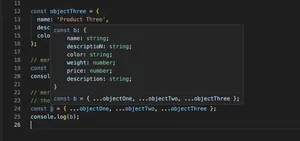Introduction
TypeScript enhances JavaScript by adding types to the language. Sometimes, importing types from external libraries into a global declaration file (.d.ts) can streamline your development process. This tutorial will guide you through the essentials of importing external types and making them globally available in your TypeScript projects.
Understanding .d.ts Files
In TypeScript, .d.ts files are used to provide type information about JavaScript code to the TypeScript compiler. These files are also known as declaration files. You might need to import external types to these files because you want to expose those types to your entire codebase without importing them everywhere.
Basic Import Example
// types.d.ts
/// <reference types="some-library" />
// Your TypeScript code file
// Now, you can use types from 'some-library' without importing them
let myVar: SomeLibraryType;This is a starting point but doesn’t leverage the power of explicit imports. For explicit types import from an external library, here’s what you need to do:
// In your global .d.ts file
declare module 'some-library' {
export type SomeLibraryType = import("some-library").SomeLibraryType;
}
// In your TS files
let myVar: SomeLibraryType;
Advanced Import Techniques
When you have complex types or libraries with numerous types, you might need to use some advanced techniques for importing them into your global .d.ts file.
Using Wildcards
// In your global .d.ts file
declare module 'some-library/*' {
export type { SomeTypeA, SomeTypeB } from 'some-library/module';
}
In scenarios where you find yourself frequently updating the global declaration file because of changes in the external library, consider using wildcard imports to automate this process.
Organizing Types in a Project
As your TypeScript project grows, it becomes necessary to organize your types. Below is an example where external types have been organized into a coherent structure within your global declaration file.
// In your global.d.ts
declare module "*" {
import * as SomeLibrary from 'some-library';
global {
type SomeLibraryType = SomeLibrary.SomeType;
// Repeat for other types
}
}
By using a global module declaration, you can succinctly specify your external types once and make them accessible throughout your application.
Troubleshooting Common Errors
Understanding some common errors you might face while working with external types can save you a lot of frustration. If you encounter an error that TypeScript can’t find a module or its declarations — double check your filenames, paths in your tsconfig.json file, and ensure that you have the necessary types installed.
Tooling and Best Practices
In conclusion, always evaluate whether making types global is the best approach. Consider this technique only when it’s absolutely necessary to improve your productivity and avoid clutter in your codebase. Moreover, leverage the power of TypeScript’s language service and tooling, like tsc, for smooth integration of external types into your projects.
Summary
To wrap up, importing external types into a global .d.ts file in TypeScript is powerful for managing a clean and efficient codebase. With the techniques discussed in this tutorial, you’re well-equipped to handle even the most complex type imports. As always, be mindful of the scope of global types, and happy coding!
